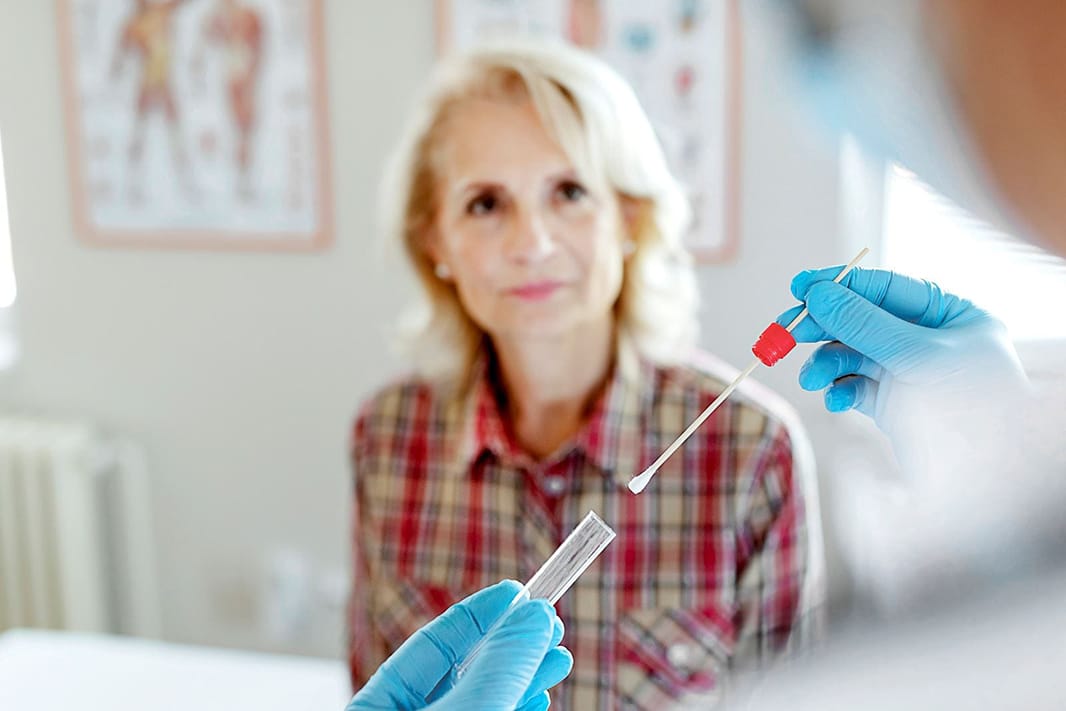COVID tests have become a part of life. Here's why you should see a healthcare provider to get one.
Posted
by Featured Provider Timothy Colby on Friday, January 22, 2021
Regardless of the reason, The Iowa Clinic has COVID-19 testing options to meet your specific needs. For COVID-19 testing, patients can visit their Primary Care Provider or, for rapid antigen testing, visit Urgent Care in West Des Moines or Ankeny. If you are symptomatic, you must wear a mask to your appointment.

#1 If you’re feeling ill, you may need medical evaluation.
“The biggest downfall with testing sites is that many do no type of patient evaluation at all,” says Timothy Colby, DO, an Urgent Care physician at The Iowa Clinic’s Ankeny campus. When you have symptoms and feel ill, it’s always beneficial to see a healthcare provider. The Iowa Clinic will assess your symptoms and test your heart rate and pulse oximetry, two key indicators that alert providers if your health is seriously in danger. “Patients with COVID-19 sometimes don’t realize how sick they actually are or how many risk factors they carry,” Dr. Colby says. “Most testing sites can’t provide medical advice and often don’t ask why you’re getting tested, so they can’t gauge the severity of your symptoms.”
#2 Put your health in the hands of experts.
Local healthcare providers have been perfecting COVID-19 testing processes since March 2020. You can be confident that you’ll receive a proper nasal swab and that an adequate sample will be taken to ensure accurate results. Being asked to self-swab is likely a red flag. If you’ve been tested before, you know that nasal swabs can be slightly uncomfortable and need to be performed a specific way. It can be difficult to collect an adequate sample when swabbing yourself.
#3 There are multiple test options, and that can be confusing.
A knowledgeable healthcare provider can determine which test is best for you depending on whether or not you have symptoms. Read on for more information on the two types of COVID tests: antigen and PCR.
#4 If you have symptoms, antigen testing offers quick results.
An antigen test or “rapid test” (available only at our Urgent Care locations) is the same type of test used to detect other illnesses you may have experienced, like strep throat, influenza and RSV. It detects specific proteins on the surface of the virus and is recommended only for patients experiencing symptoms. “The ideal time for antigen testing is within the first 5-7 days, and only when you have symptoms,” says Dr. Colby. Be sure your symptoms have lasted at least 24 hours to ensure an accurate antigen test. Results are quick: in 15 minutes, you’ll know if your test was positive.
#5 If you don’t have symptoms, PCR testing will offer the most reliable result.
If you’re worried about exposure but asymptomatic or wanting to get a clean bill of health for travel, PCR testing is the answer. “Polymerase chain reaction or PCR testing is the gold standard,” Dr. Colby says. PCR is a highly sensitive lab technique that works by detecting the genetic material of the virus. Because the test samples must be sent to a lab for analysis, results take 24-48 hours.
#6 Get tested for COVID-19 and the flu in one swab.
“There’s a lot of overlap between flu and COVID symptoms,” Dr. Colby says. An antigen test at our Urgent Care checks for both flu and COVID in one swab and provides answers in 15 minutes. Determining what you’re sick with helps plan your next course of action – and gives you peace of mind.
#7 Receiving a positive test can be scary and shocking.
Being able to sit with a provider you trust to discuss your results and ask any questions you have can make all the difference. It’s never ideal to get bad news over the phone.
Meet This Featured Provider

Learn More About:
Urgent Care
Accepting New Patients
Other Coronavirus
All information offered on The Iowa Clinic website is intended to serve as general educational information only. Any content, product or service is not intended to be a substitute for professional medical advice, diagnosis or treatment. If you believe you have a medical issue, always seek the personalized advice of your physician or qualified healthcare provider.
The Iowa Clinic may provide links to outside sources for additional resources or information and is in no way responsible for the information provided by other organizations or sources. © The Iowa Clinic, 2024